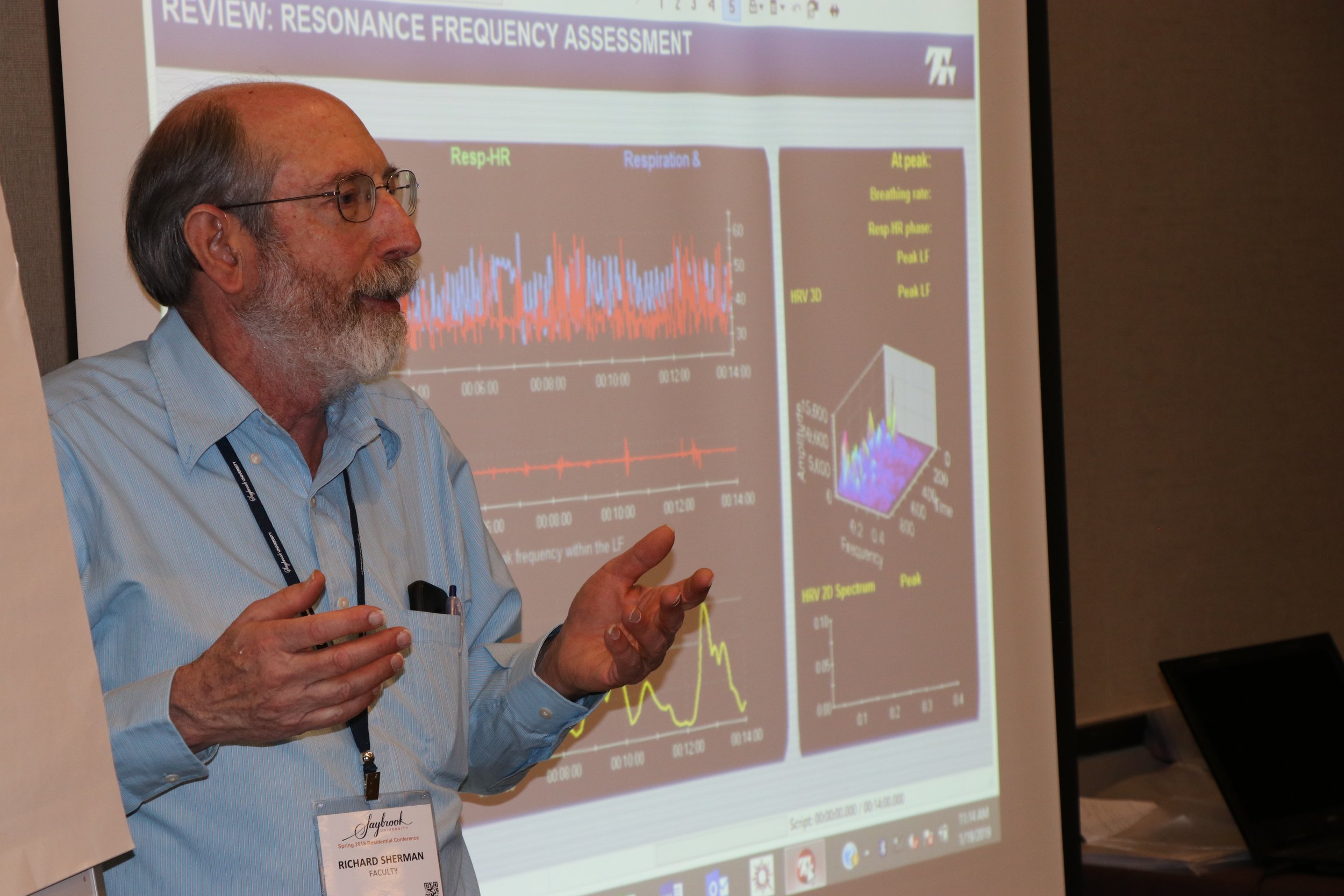Psychophysiological Recording, Assessment and Intervention
The Psychophysiological Recording, Assessment and Intervention (PEP019) course is a comprehensive course that provides the depth of knowledge in psychophysiology, biofeedback equipment, and training techniques required to perform psychophysiologically oriented assessments and biofeedback-based interventions.
$900.00
Instructor
Dr. Richard Sherman
Course Introduction Video
-
Psychophysiological recordings can be used to make objective assessments of many aspects of performance, which can then guide psychophysiologically based interventions such as biofeedback.
This course provides sufficient material so students will (a) know the psychophysiological basis for performing recordings (b) what the common assessments and interventions are as well as how they work, (c) what the common associated interventions are, (d) how the recording devices work in many settings including performance, clinical, and educational, (e) how to perform an effective recording, and (f) how to perform effective psychophysiological assessments and interventions.
This course provides a basic understanding of the physiology and methodology underlying common psychophysiological recording techniques used in performance evaluation and behavioral medicine, including surface electromyography, electroencephalography, respiration, blood pressure, pulse rate, skin temperature, and electrodermal responses. Sufficient knowledge about how common psychophysiological recording and biofeedback instruments function and are used is provided so students can incorporate psychophysiological aspects of assessment into their normal practices. This course also teaches the principles and applications of biofeedback as used in educational, performance, and clinical settings. The strengths and weaknesses of evidence supporting the use of biofeedback for a variety of clinical disorders are reviewed and performance skills are detailed. Techniques for using biofeedback as a tool for shaping and conditioning responses to stress are emphasized.
-
This course is designed to help the student to:
Summarize the psychophysiological processes underlying each condition covered in the course. This objective is supported by modules 3, 4, 6, 7, & 8.
Use psychophysiological recording and biofeedback devices to record and display psychophysiological information. Supported by modules 2 & 5.
Learn and demonstrate an understanding of the elements of common psychophysiological assessment and intervention techniques such as biofeedback, relaxation training, cognitive restructuring, hypnosis, meditation, and audiovisual entrainment. Supported by modules 6, 7, & 8.
Use psychophysiological recording equipment to assess patients with specific conditions. Explain the physiology underlying optimal functioning and stress responses in order to design and conduct appropriate training to optimize functioning in business, education, sports, and (when appropriately licensed) clinical Supported by module 6.
Use psychophysiological recording and biofeedback equipment professionally and ethically to apply specific assessments and interventions tailored to each condition covered in the course. Supported by modules 9 & 10.
-
None
-
Schwartz, M.S., & Andrasik, F. (Eds.). (2016). Biofeedback: A practitioner’s guide (4th ed.). New York, NY: The Guilford Press.
~$48 (ebook), ~$52 (paperback), or ~$30 (hardcover)
ISBN: 978-1462531943
2. DO NOT BUY. E copy Supplied with the course materials: Sherman, R. (2012). Pain assessment and intervention from a psychophysiological perspective (2nd ed.). Wheat Ridge, CO: Assoc. for Applied Psychophysiology and Biofeedback.
3. Only for students who have not had a basic kinesiology course:
Lippert, L. S. (2017). Clinical kinesiology and anatomy (6th ed.). Philadelphia, PA: F.A. Davis. ~$40 (paperback) ISBN 978-0803658233
4. BUY ONE FOR THE DEPARTMENT. Students do not need their own copies unless they wish to purchase one: Andreassi, J. (2013). Psychophysiology: Human behavior & physiological response (5th ed.). New York, NY: Psychology Press. ~$20 (ebook), ~$50 (paperback)
ISBN: 978-0805849516 or 0805849513
-
The Behavioral Medicine Research and Training Foundation is approved by the American Psychological Association to sponsor continuing education for psychologists. The Behavioral Medicine R&T Foundation maintains responsibility for this program and its content.
-
There is one year to complete the course.
No refunds are issued after the course is purchased and materials are received.
-
Testimonial
“The course material is covered very clearly through lectures and also provides extra references to expand more deeply into the topic of study.”
Lorena Casado Román

